YouTuber Red Means Recording talks about music tech brands, free gear, and the value of a creator and its content in a new video.
A world without YouTube is hard to imagine these days. Where you used to look forward to the latest issue of a music tech magazine, now you only need to make a few clicks, and you will be overwhelmed by music tech content.
Whether it’s about the latest Synthesizer releases, vintage synth stories, tutorials, or sound demos, everything is just a few clicks away. It’s like an à la carte service that is always available and free of charge. Ok, plus the annoying ads from the MIDI chord pack mafia, but thank god for the 5 seconds advertising skip functionality.
YouTube And The Content
Nowadays, it is normal for people to open YouTube and watch videos about certain things. But millions of hours of content don’t come out of anywhere.
This content is produced daily by YouTubers, i.e., content creators. Either raw from the living room with screaming children in the background, from a home studio in a wood cabin, or all-in from a room specially designed and optimized for content creation. The latter is later viewed by millions worldwide at home or on the go, with more or less great success for the creator.
The reason for this #realtalk article is a new video by Jeremy Blake, aka Red Means Recording, questioning his collaborations with music tech brands. It is primarily about whether the companies should pay a content creator for the work they do on their behalf of them. Including the well-known marketing game “free gear vs. video on the channel and the pressure that arises in such a partnership.”
If you ask me if this is legitimate, I’ll say yes. There are reasons for my answer. The whole thing is tricky for every content creator with a significant reach, enough subscribers, and a good community. Tough because when money comes into play, there can be unrest in communities. Doubts about credibility may arise, etc.
Even though I don’t charge money for videos at the moment, the topic of the creator and its output (content value) is essential to me. Three players are important in this discussion: music tech brands, creators, and the community.
Music Tech Brands
A video is a product that does not generate with a simple snap of a finger. Maybe in a few years with ChatGPT or other weird AI generators. Today, in 2023, creating a video is work. Many do it for fun because it is an enjoyable hobby. Others do it full-time because the channel has reached a significant point where the creator can live from his passion. And producing a video is always fun. Otherwise, to be honest, you don’t invest days or nights for a single video.
Video production (content creation) is a daily job for those who do it full-time. You get up; you work… just like a regular job. Should it be valued like this? Yes, just like any other paid job. The person has to make a living from something to pay the rent, bills, food, social security, etc. Also, electricity, because without electricity, there is no sound and no video.
A content creator generally finances his activity through YouTube ads, affiliate marketing, platforms like Patreon, additional sound content, etc. However, if a music tech brand contacts the creator and wants a video from him, we drift into the field of commissioned work. The sheet turns.
Instead of making videos on their own, a company wants to match the creator’s musical talent, expertise, or video skills of the creator with their brand identity to promote their new super hot synth, for example. Here the possibility of payment comes into question since the creator offers a service to the company, which is his daily work.
FGS (Free Gear Syndrom)
In many cases, the conservation between the YT and the company ends with a free gear relationship. “A free device for a video on the channel.” However, synth, drum machine, or whatever is not free for the creator. Many see this as a payment compensation, the viewership, and the companies. Wrong!
Yes, I can clutter up my studio with gear, hurray, but they won’t pay my electricity bills, grocery shopping, rent, etc. ” Can I pay for my 6 bananas with my Korg Volca”? Many YouTubers have no problems with this relationship. Not Jeremy, and I agree with him there, specifically related to the case of commissioned work.
Content is the only product/service of a creator. For professionals, free gear is a production aid to create the result, not the resource we need to get through life. In that case, the company should pay the creator. Whether it’s a review, sound demo, or music composition, work remains paid. Money rules the world, not free gear.
Reach
In addition to the content/work, the creator offers a company its reach built up over many years, including the valuable community. Similar to press websites or TV stations, the more people click/read /watch, the more interesting it is for company X or Y to advertise there.
The same counts on YouTube. Many video views and subscriptions, the more attractive you are as a creator for a company. And the reach and clicks that YouTubers achieve today massively exceed those of traditional press outlets. As a reminder: print has been financed for years by selling advertising to brands, often for four-digit contributions.
To this, it is legitimate and fair if a channel operator offers his reach to companies for a fee. Compared to the classic press, this way is often much cheaper and more attractive for music tech brands. Because the ad stays forever, the booked content is always visible, and you can see its reaction in real time.
In press, it’s a one-time experience before it flies into the corner or the trash after reading. On YouTube, new viewers keep seeing the ads. So it’s a single payment with an endless effect. So why not market the channel?
Community
An essential part of every YouTube channel is the community. The people who click on videos interact with the creator and subscribe to them. Without them, the channels would not be where they are today.
However, every Tuber constantly sits between the chairs: the community and the companies that always want to promote new products. How to do it right? You never get it right for everyone. There is always a group that doesn’t like what you are doing. I also deal with it daily in my activity, whether here or on YouTube.
Charging for video productions is tricky and tends to be viewed negatively by the community, especially for reviews, etc. With the banner “paid promotion,” YouTubers can make a minimum to make it visible to the viewer whether you got free gear or payment for your video.
That was a good step forward in transparency, but you still need to learn what’s happening behind the scenes… Some larger music tech channels communicate little or nothing about their financial dealings. Even ignore the YT banners. Mainly to avoid discussions with their community. They have the right, it’s their channel, their product, but is it fair to the community?
I’m conflicted about that. On the one hand, transparency is important to me so that the viewer knows whether the video was supported or paid. On the other hand, I don’t want to show my complete activity on YouTube like an exhibitionist. It’s a challenge to find a good mix to communicate the topic to your mighty community. Whether directly or through the banners, which is the minimum a creator can do.
If the YTer is honest and cares about its community, he clearly states the financial background of the video. No problem if it’s communicated well. And a good, open-minded company pays for the reach, the expertise, and the format of the creator. But there are enough bad companies that like to see pre-scripted reviews or content before publication—no thanks to me.
Why Third-Party Sponsors Are Not The Ultimate Solution
Are there any unbiased reviews at the time yet? No, I do not think so. That’s because you’re creating content or text about something you are interested in and like. I only test what I find interesting. I have freedom and don’t know anyone who reviews or covers a product they hate. That would quickly make my job uninteresting.
A product that I am initially interested in can fail the test later. That is, of course, possible and normal. Thus, a review can be supported with free gear or sponsored; no one is unbiased anymore. I’m honest.
Many YouTubers avoid the paid review problem in which they market their reach to others by offering other companies an ad slot during a review. So the advertising has nothing to do with the actual review. This is one of the best methods to earn additional money.
However, one suppresses the problem of the appreciation of the content. You play the MI game. Music tech brands will continue to send people free gear in hopes of getting “free” cross-financed publicity. It’s also one of the problems that Red Means Recording addresses in his video.
Summary
Being active as a YouTuber or press is not easy, especially if you want to live from your passion. You always run the risk of doing something wrong in your community. I could sell myself and my reach better in many areas. I could do a lot more with my activity. But like every content creator, you always wonder whether this is the right decision for you, for your partners, and mainly for your community. In my case, the readers and viewers.
Every creator is different and unique. Everyone has found a way to finance a living from their activity in whole or part. But something should be important to all creators: the companies need us, not the other way around.
More information here: Red Means Recording

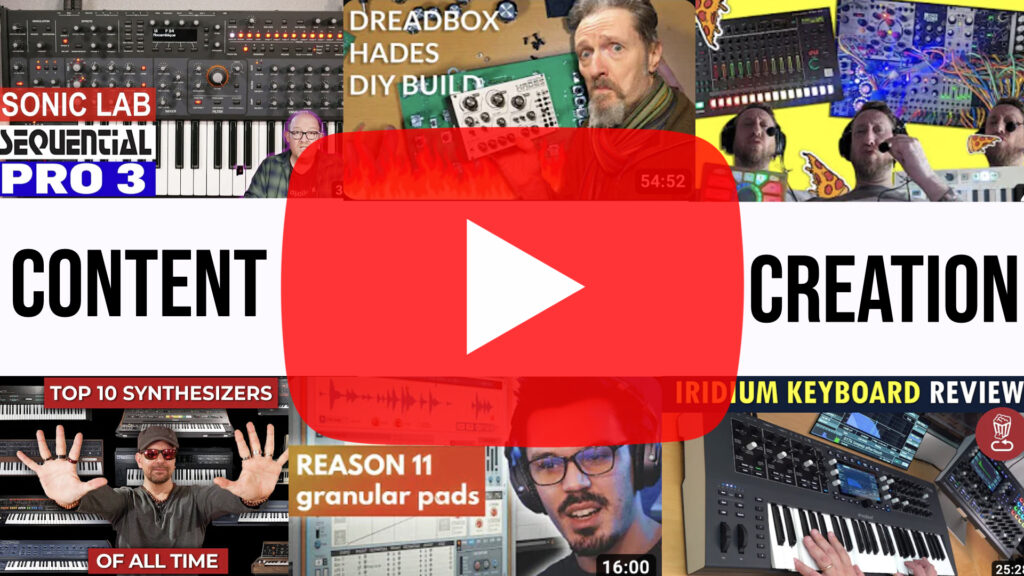
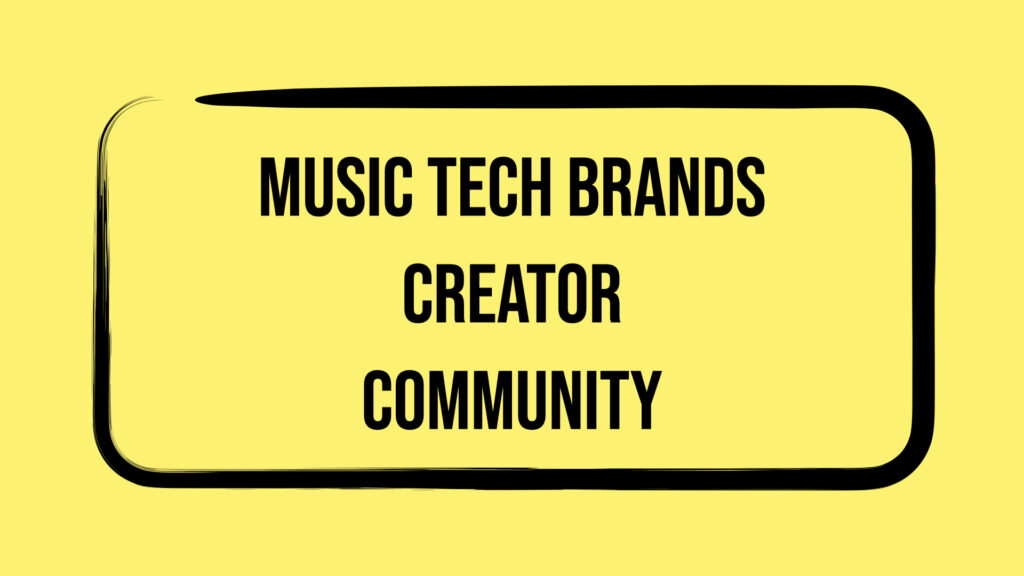
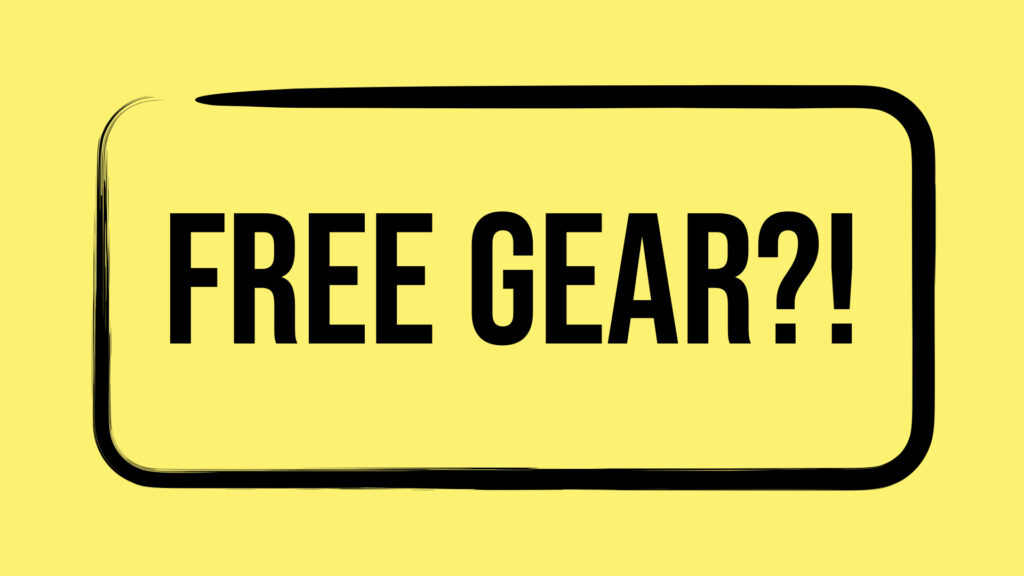
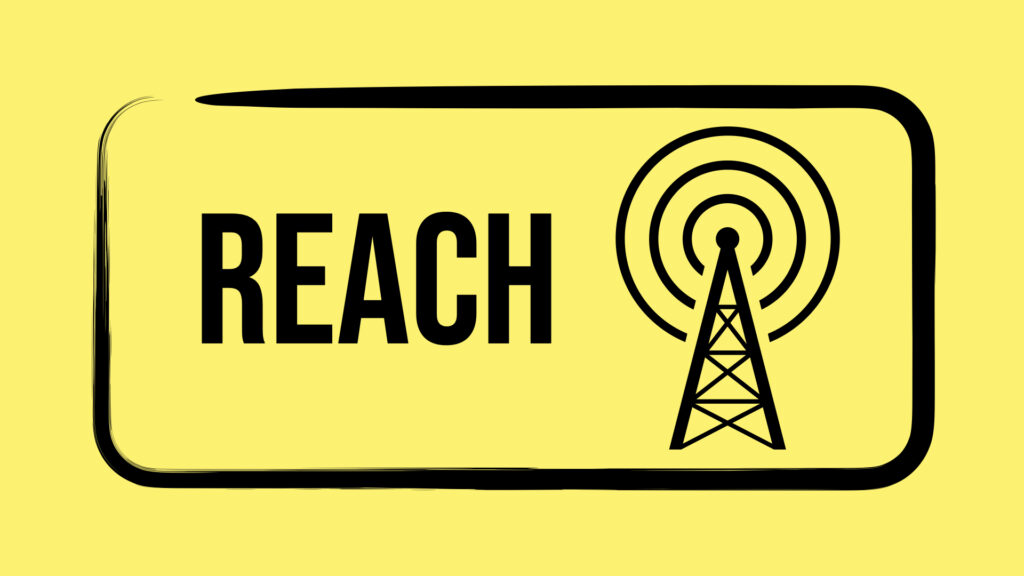
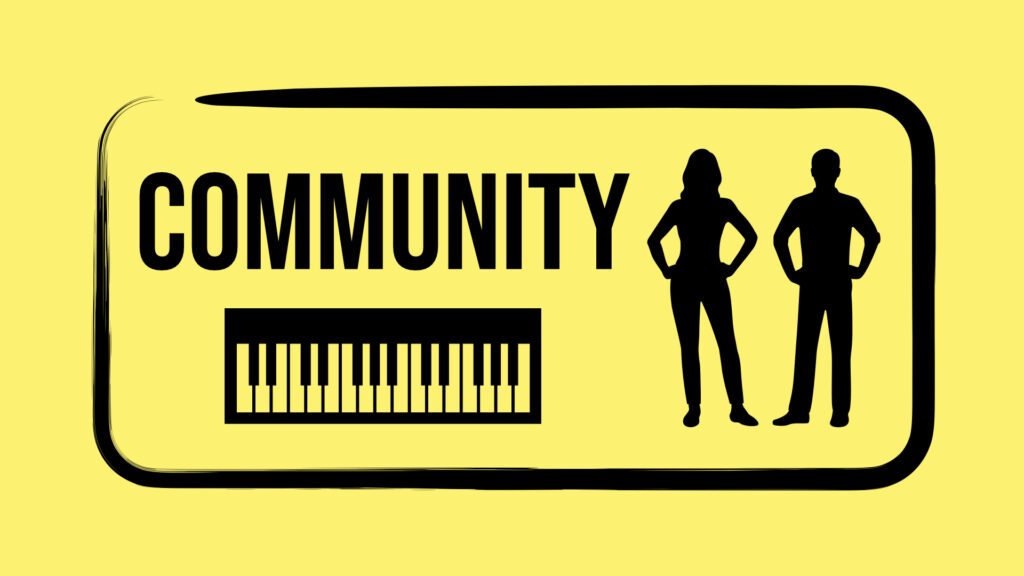
“Free Gear Syndrome” is such a great term.
As audience, I’m sure it’s hard to understand.
But, trust me, “content creation” Is such a difficult task when we’re talking about independent creators. You got to spend on your cameras, lenses, lightning, audio, editing software for pictures, video and additional effects, plus the knowledge and effort you put into making everything work together.
Not to mention that, in this niche, you need some music background and the ability to learn the gears ins and outs and explain it, whether you ended up liking it or not.
It’s a lot of work just to be paid with the gear itself, while the company in turn, it’s profiting a lot for a single, non-paid advertisement.
My 2 cents.
Kevin
I would pay to have those creators stop making content.
Hahaha! Best comment today.
Jokes aside, there are some good content creators/reviewers, and also some very boring.
I like this idea – Kickstopper. Indiestopstop. Patreoff.
Also, why do so few of them actually make music with all this gear?
Sure, this sounds reasonable. Of course, as businesses providing a commercial service, YT creators then would also have to conform to business and industry standards including:
* they should not be paid any money if their content is crap;
* they should be held accountable for adhering to minimum service and production standards such as correct grammar and spelling (e.g. Synth Anatomy’s hardly published a single article in English during its entire existence that did not have broken sentences, spelling and grammatical mistakes, nonsensical fragments etc.);
* they should register as businesses, run payroll and accounting and HR, buy insurance for their employees, etc.;
* they should be held liable for any mistake they make in a review, and subjected to enormous compensation claims on grounds that they damaged a firm’s/product’s reputation;
* they should need to meet minimum requirements (e.g., equipment standards, licensing conditions, passing certification exams etc.) before they can enter this field, and so forth and so on.
…but then none of them would be in this business, now would they?
It’s nice to read something like this from a Ghost. And didn’t know the ghosts are so horny about mistakes from others. But this ghost must have a mother tongue English, which makes it easy to speak/write a language perfectly. I have to deal with 4+ languages every day. Sorry for my mistakes and my authenticity. I didn’t know that it trigger people like that.
And yes, every major YouTuber is registered as a small business or independent. We pay taxes, etc, including me.
You should:
* Eat a dick
* Touch grass
Well trolled, sir/madam/entity.
I almost took you seriously on first read. That’s some fine evil you’re spruiking:
* refusing to pay people for their efforts based on your own subjective whim;
* holding people accountable for standards you set but don’t define (except for petty stuff like grammar);
* expecting low paid creators to run businesses in the same manner as larger employers, regardless of income;
* litigating regardless of context &/or perception, time, resources;
* prohibitively steep regulations without considering oversight & completely unregulated subject matter;
I can’t wait to live in such an even more hellishly petty, small minded world where
* we end the careers of those who do what they love because someone irrelevant to that person was mildly irritated;
* then use that irritation to impose stupid, arbitrary boundaries on designers & manufacturers to limit what we love;
* then use those boundaries to the waste & money of our governments doing stuff like setting regulations around FM vs PM synthesis.
Thanks, Ghost!
Interesting. I recall being attacked on this site just last week for suggesting a video should have carried the ‘paid promotion” tag.
Synth videos are like any type of art or music: It always has and always will be damn hard to make a living from it. That’s because it’s fun and lots of people will do it for free. It’s not like fixing a drain or digging holes – you want that stuff done then you pay.
Oh yes and BoBeats is insufferably smug.
I watched the RMR video yesterday. I thought it was, on balance, pretty bad. For one thing, not the sort of content you want to be sharing in public like that. Much better to just deal with your ‘suppliers’ privately, but I’m not surprised RMR did it public. That is his way.
I reckon the ultimate problem is YouTube, and all social media for not paying content creators enough. When you can’t make money from YouTube you need to look to make it elsewhere, and that’s when problems start. But the flip side of that is everyone knows it’s really hard to make a living of YouTube. So you should know as a ‘creator’ that you’re going to have a hard time making your money off YT right from the start, and that should be a factor in deciding how much effort to put into it. This is compounded by the fact music tech is super niche. I assume if you want to get rich of YT you make ASMR or the other mindless crap my kids watch (like people blowing up buckets of slime). You don’t make videos on how cool Mutable Instruments modules are.
We all have to deal with the fact that creative content (YT, music, film) is now considered a commodity. No-one wants to pay much for it anymore. No-one values it like they used to. It’s just more stuff to be consumed. In that context good luck making money from it (unless you are a rights holder/megacorporation/distributor or whatever).
Fun times!
And that was RMR’s “edited” version where he chopped out most of the rants. The original must have been a mighty whinefest. He seems like the “Prince Harry of Synths” to me – moaning about what a tough time he has while sitting in the top 1% of his field.
First of all, music / audio equipment manufacturers have a long history of paying people to shill for them by writing biased reviews. That’s been going on before there was YouTube when such reviews were in magazines. Those are generally the people they choose to pay.
What Red Means Recording wants is for them to pay him for his honest reviews because of all the work he puts into it.
I think he needs to look for other ways to monetize his channel. There are other reviewers who get sponsors, so the person paying for the review is not tied to the product being reviewed.
That’s better for consumers, because when a reviewer is being paid by the manufacturer, they’re more likely to be biased. So that they continue to get paid.
Certainly, there’s still the potential for a little bit of that bias, so that the reviewer will continue to get free gear.
But when people are not dependent on the income stream to live of being paid by the manufacturer, they are more likely to be honest.
Synth Anatomy, please keep doing what you’re doing and ignore these trolls. For those who comment and don’t put anything out there of your own creation: fuck off. Just fuck the F off.
Do any of you know how hard any of this is?! Even remotely? Maybe you’re just bots. Wouldn’t be the first forum…
Browe, you do realize you’re the only one here who has contributed nothing worthwhile to the comment section? Get some self-awareness.